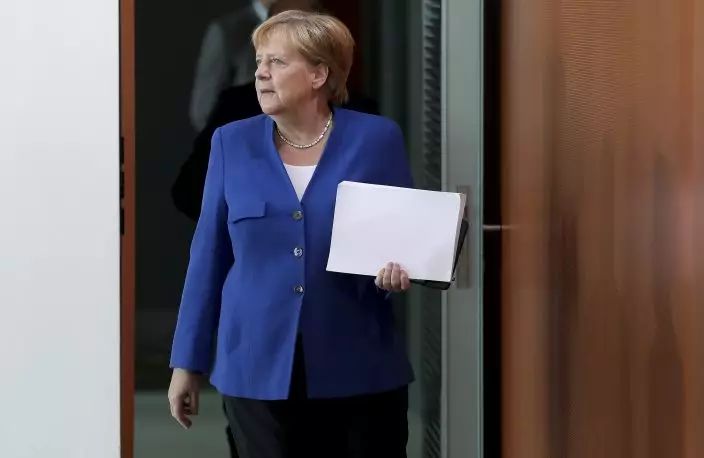The German government sold 30-year bonds at a negative interest rate in a sign of the clouds over markets and future growth as well as increased expectations that more central bank stimulus is likely on the way.
The sale adds to the piles of negative-yielding bonds currently held by investors, indicating they expect growth and inflation to be subpar in coming years. Bond interest yields have also fallen as expectations grow that the European Central Bank and the U.S. Fed will launch more stimulus.
Negative rates mean that investors are in effect willing to pay Germany for a relatively safe place to park their money.

German Chancellor Angela Merkel arrives for the weekly cabinet meeting at the Chancellery in Berlin, Germany, Wednesday, Aug. 21, 2019. The German government sold 30-year bonds at a negative interest rate Wednesday Aug. 21, 2019, in a sign of the clouds over markets and future growth as well as increased expectations that more central bank stimulus is likely on the way.(AP PhotoMichael Sohn)
The state financing agency said Wednesday that it sold the bonds due in 2050 at an interest rate of 0.11 percent at an auction.


